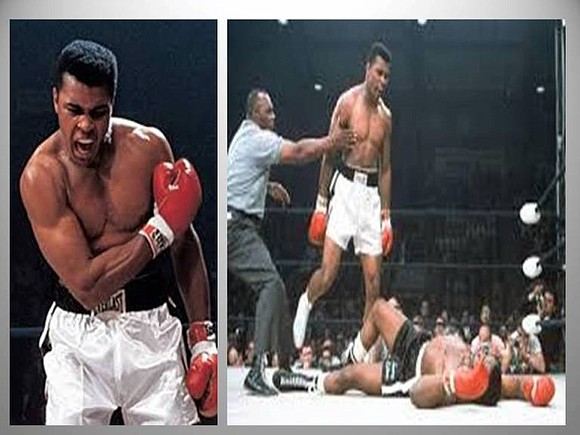Why Muhammad Ali’s impact on Sports is still being felt today
Style Magazine Newswire | 9/4/2020, 11:06 a.m.
By Lenny Moon
The year was 1964, when a then 22-year old Cassius Marcellus Clay Jr ascended to the top of the world of sports when he defeated a heavily favored veteran Sonny Liston to become heavyweight champion of the globe. The Louisville, Ky native would not convey the image of the conventional traditional Black athlete from the outset. His extreme confidence and brashness was not the composite package that America, if not the entire free world had witnessed from such a platform before him.
One might surmise that his demeanor was influenced by the turbulent decade of the 60’s in this country, where historical social unrest dominated the landscape. Sure there were high profile Black athletes that made there mark prior to Muhammad Ali. Legends such as boxing champions Jack Johnson and Joe Louis, professional baseball’s Jackie Robinson, Jesse Owens from the 1936 Olympics along with Ali’s contemporaries Bill Russell, Wilt Chamberlain and Jim Brown. Well anyone that’s even remotely studied the career of the self proclaimed “The Greatest”, would clearly recognize that Ali had more impact on the 60’s than the decade could have possibly had on him. For that younger follower of sports, let’s place this theme in perspective.
During the time that the world was being introduced to this handsome, extroverted heavyweight champion of the world that was not hesitant to proclaim to anyone that was listening how pretty that he was, it was not fashionable for a Black athlete to be heard without being spoken to. The same year that Ali earned his title, the Civil Rights Act would finally be signed later on the calendar of 1964. This was before the Voting Rights Act had been legislated (1965) or the Fair Housing Act (1968) were signed into law. During the era of African Americans fight to elevate our status from second class citizenship, Ali was lifting the image of an entire race while becoming the most recognizable person on the planet. Once he became champion when the spotlight of world would follow the champion, he officially dropped his birth name (or slave name as he stated) from Cassius Clay to Muhammad Ali.
By this time, just as many American boxing fans would pay to see him lose as to cheer him to victory. This would only fuel his performances that would evolve to predicting the round he would stop his opponent in the ring along with penning poetic narratives that would accompany his events. When he refused the military draft in 1967 and stripped of his title for over 3 years (as an undefeated champion), his legend grew larger when he took advantage of his legal fight with the U.S. government and his exile to lecture colleges nationwide. He opened eyes by stating “I have no quarrel with the Viet Namese, it’s in America where I’m called the “N” word”. Instead of ostracizing the champ, he became larger than life. When his boxing license was restored, Ali would win the world championship two more times before retiring in 1981. Ali’s boxing career was the launching of high profile athletes utilizing their platform for issues much larger than sports.
Now that we’ve entered our third decade of the 21st Century, and in the midst of the Black Lives Matter movement, we’re witnessing similar activity from contemporary athletes that are utilizing their respective platforms to enhance social awareness. Leading the way is the National Basketball Association which is approximately 75% Black, coupled with a globally popular product and world-wide social media accessibility, they have fully realized their leverage in the modern scheme of things. When they speak, people around the world listen. In the 21st Century, NBA players are the most visible athletes in the world, and to their credit they have evolved to effectively utilize their muscle to impact communities from whence they came. As opposed to be resigned to “shut up and dribble”, they are demanding social change such as police reform, voter education, justice for the murders of unarmed Blacks by police among other pertinent social issues. Modern day Black NBA athletes are also realizing that billionaire owners are accruing their wealth on the labor of their extraordinary athletic prowess. In essence it has always been a partnership (one can’t succeed without the other) but not necessarily executed as such. In the spirit of Muhammad Ali, these athletes are carving new paths in the sports arena and along the way, the status quo might become a little uncomfortable.









